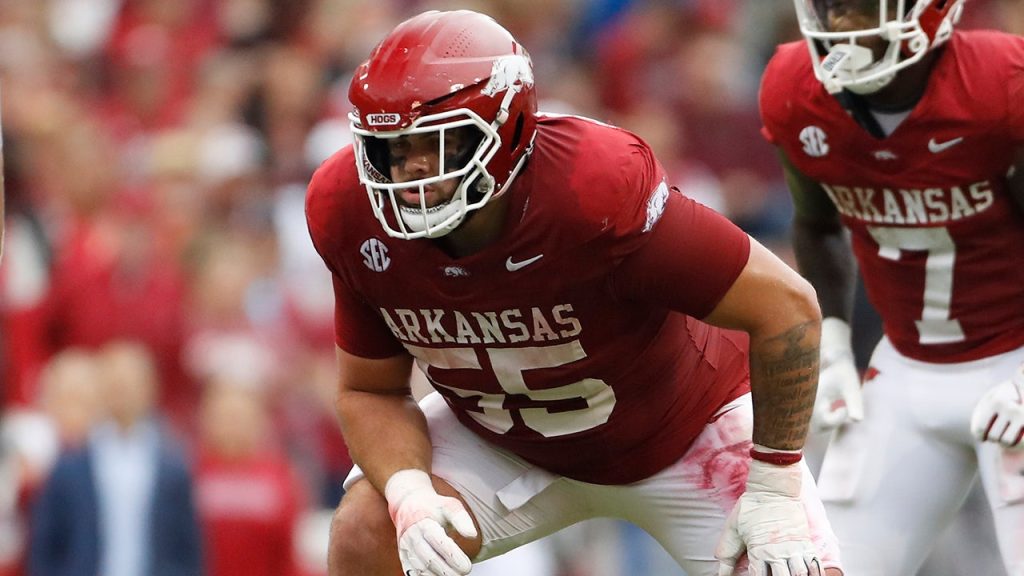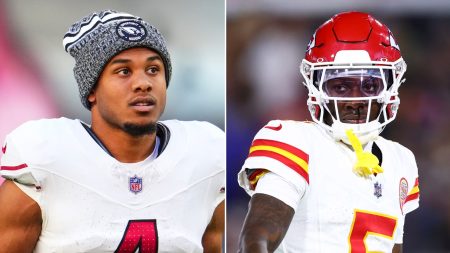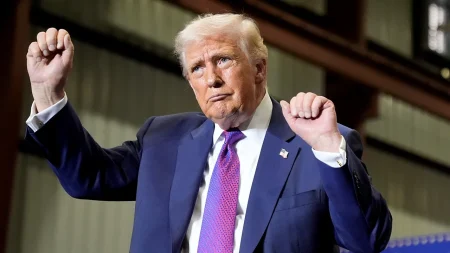The Liberty Bowl game between the Arkansas Razorbacks and the Texas Tech Red Raiders concluded with a 39-26 victory for Arkansas, but the post-game discussion focused heavily on a controversial incident involving Razorbacks offensive lineman Fernando Carmona. Video footage captured Carmona stepping on the ankle of Texas Tech player C.J. Baskerville during the fourth quarter, sparking accusations of unsportsmanlike conduct and intentional harm. The incident ignited a firestorm of criticism on social media, with many condemning Carmona’s actions and calling for severe repercussions, including a lifetime ban from the sport.
Carmona subsequently issued a public apology via X (formerly Twitter), acknowledging that his emotions had gotten the better of him during the game. He expressed remorse for his behavior, emphasizing his respect for Texas Tech and the game of football itself. Carmona also extended apologies to his team and coaching staff, stating that the incident was not reflective of his character and that he would learn from the experience. However, the apology did little to quell the outrage directed at him, with many questioning the sincerity of his statement and highlighting the apparent intent behind his actions.
Baskerville, the target of Carmona’s transgression, also took to X to express his outrage. He acknowledged the strong performance by Arkansas but condemned Carmona’s behavior as “straight up dirty,” asserting that the lineman had intentionally stepped on and pressed down on his ankle. Baskerville further claimed that Carmona had uttered a derogatory remark after the incident, further fueling the controversy and the calls for disciplinary action against the Razorbacks player. The incident casts a shadow over what should have been a celebratory moment for Arkansas and raises questions about the importance of sportsmanship and maintaining composure in high-pressure situations.
The incident also underscores the increasing scrutiny that athletes face in the age of social media, where every action is captured and disseminated instantly, often leading to rapid and widespread condemnation. While Carmona’s apology suggests a willingness to take responsibility for his actions, the incident likely serves as a stark reminder of the potential consequences of losing control in the heat of competition. The controversy also highlights the ongoing debate about the role of officials in addressing on-field misconduct and the adequacy of current penalties for unsportsmanlike behavior.
The incident involving Carmona and Baskerville resonates beyond the confines of a single football game. It touches upon larger issues of sportsmanship, ethics, and the responsibility that athletes bear, both on and off the field. The swift and widespread condemnation of Carmona’s actions signals a growing intolerance for unsportsmanlike conduct in the sporting world. The incident also serves as a cautionary tale for young athletes, emphasizing the importance of maintaining composure and respecting opponents, even in the most intense competitive environments.
Finally, the incident highlights the power of social media in shaping public perception and holding individuals accountable for their actions. The rapid dissemination of the video footage and the subsequent online outcry played a crucial role in amplifying the controversy and pressuring Carmona to issue a public apology. While social media can be a double-edged sword, in this instance, it served as an effective tool for highlighting unacceptable behavior and promoting a discussion about sportsmanship and ethical conduct in the world of collegiate athletics. The incident is likely to remain a talking point in the broader conversation about sportsmanship and the role of social media in holding athletes accountable for their actions.













